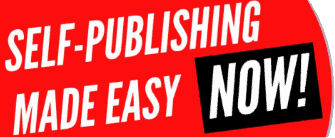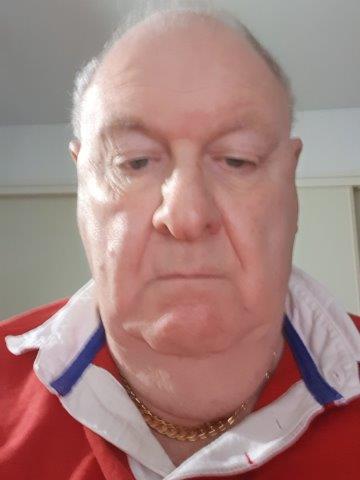Here’s something you’re NOT going to like:
The publishing industry is
All about the money!
So many authors today, experienced or beginners, are being encouraged to write about their passion,
something that consumes them, and then get taken advantage of by a publisher or merchant…
All with the promise to sell, make them an honest living, and make their books an instant fan favorite!
And let’s be honest: As an author, what more could you ask for?
That would be the best-case scenario… only there’s a little tiny problem that gets in the way: 99.9% of the time, this scenario never actually happens!
You’re left with low sales, high commissions, and little to no attention to the values behind your creation!
So, what’s next?
Do what 1 in 4 authors does right now and take matters into your own hands: Self-publish!
From afar, self-publishing looks like author heaven: You get FULL creative control, up to 70% in royalty rates, and you can publish your books whenever you want to!
... But if you’ve dabbled into self-publishing before, you KNOW that much like your ex, it’s much prettier from far away…
Here’s what you’ll find:
And the list goes on and on…
But what if your self-publishing experience didn’t have to go like this?
What if you could:
If your answer was YES all across the board, then you’re EXACTLY where you need to be!
We present you with an easier, more effective, and impactful self-publishing system that can single-handedly turn your authoring experience into a thriving, self-fulfilled, and gratifying career.
YOU ARE AT THE RIGHT PLACE!
The Help You Need to get Your Books Self-Published and Selling!
The industry secrets and real-world experience every author needs to SHINE, now at your disposal!
Gain 10X the exposure and traffic
for a fraction Of the usual cost
and avoid expensive self-publishing
mistakes.
Follow an actionable, step-by-step
plan that ends in a massive success
for your book and your name
in the writing world.
Get your book edited, covered,
and
published in record time.
Create a book that’s not only a
huge hit and a fan favorite but
one that you can also
stand behind and be proud of.
Stay away from shady publishing
companies and enjoy keeping all
the royalties and commissions
to yourself.
Start taking real leaps in your career
as a self-made and self -published
author by giving your books the
platform they deserve.
NO MATTER YOUR LEVEL OF EXPERIENCE, THE SCALE OF YOUR
BUDGET, OR THE AUDIENCE YOU’RE TRYING TO TARGET,
I’M HERE TO HELP!
A lot of publishing solutions today are very beneficial, but also very exclusive to either a group of authors, a genre of books, or a large-scale budget
My mission since day one has been to break that mold and create a wide range of courses and coaching programs that turn self-publishing from confusing and overwhelming into an exciting experience!
SO WHATEVER YOUR GOALS ARE, YOU’RE GUARANTEED TO FIND AN OFFER THAT’S PERFECT FOR YOU!

Book Formatting Made Easy
(Course)
The Course You Need to Get Your Book
Formatted Quickly and Ready To Sell! This course will break down the book formatting process into simple steps a child could follow.
You will have a book ready to upload to any of the top self-publishing sites in little to no time!
Content Marketing Made Easy
(Course)
The Course You Need to Build an Audience and Get Your Books Selling! This course will teach you everything you need to know to build an audience of hungry readers through content marketing.
Sit back and let Google and other
search engines send you new readers
while you sleep!
Coaching For Self-
Publishers
The Help You Need to get Your Books
Self-Published and Selling! You will work
1-on-1 with Chris to get your book published in no time! You are lacking the knowledge, motivation and patients to get the job done.
That is exactly where Chris comes in to
make sure you get your book
published... FAST!
Hear directly from the people I have helped!

Great tips to get my book page and
my ads right…
Chris was able to help me with setting up my AMS campaigns. He provided me with some great tips to get my book page and my ads right and even took the time to look over the actual adverts I was using
SAM BURNELL // Author of A Queen's Spy, A Queen's Traitor, The Tudor Heresy

Easily created my first ad campaign
in just a few minutes…
Thanks to Chris' information and willingness to share his success, I easily created my first ad campaign in just a few minutes. He promptly responded to my questions with simple answers, quickly understanding my genre and suggesting attention-getting ads for my book.
JENNIFER GRIFFIN // Author of Understanding Morning Sickness as a Gift and Understanding Your Child as a Spiritual Gift

Have been able to make small changes in order
to get big results…
Chris was able to quickly identify the issue with how to get my book selling right away. I think he was able to lower my expenses by thousands of dollars. Before I e-met him I thought that I must produce 100 books (50 000$) and then I will be able to make ~$1000/month. I didn't understand just how important keywords are in the title or description and now have been able to make small changes in order to get big results. Thanks, Chris!
Sumej Vse // Author
Why should you trust me?
Because I’ve been where you currently are, lost, confused,
and scratching my head, not knowing how to move forward
with my first book…


I was a complete newbie and only knew how
to do one thing: Writing. I thought that’s all
you needed to succeed as an independent
writer; that’s why I wasted weeks of my life
failing to get my books published…
Stop Stressing Out Over “Self-Publishing” and Get
Your Book Published
When you spend
countless nights
staring at your laptop
screen, writing away
your passion, nthe one
thing that keeps you
going is making a living
out of the one thing you
love most: Writing!
You started this for the passion, the opportunity, but once you wrote that last full-stop, you found yourself lost and not knowing where to go next…
That’s because 10 years ago, you’d publish your book to your friends and family and maybe the nearest bookstand. Today, you have hundreds of overwhelming options that can leave you feeling
like nothing is right for you.
That’s where we step in to simplify,
strategize, and calculate every step of your
journey, making it as time and cost-effective
as possible!
How can we help?

You join our community by signing
up to receive our FREE checklist
and newsletter.

Once you’ve got the checklist in
hand, you know where to head next
and how you can NAI self-publishing
from the first try.





